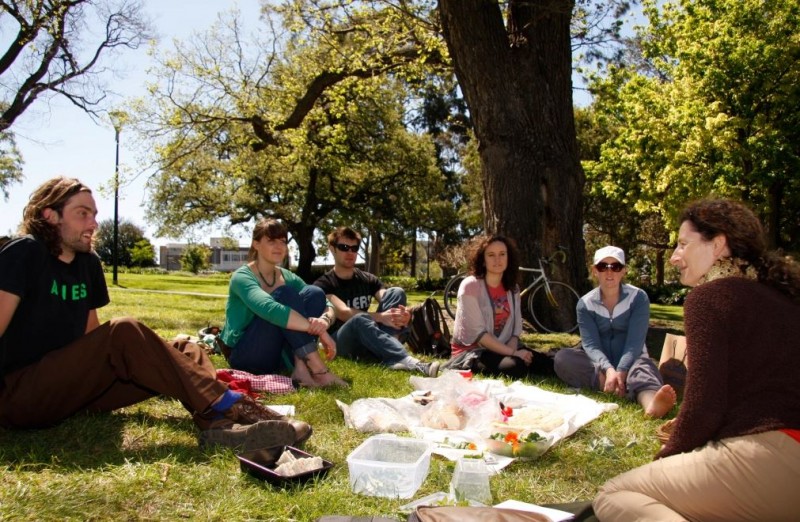
Living off-grid and embracing sustainable practices has become an appealing lifestyle for those seeking a deeper connection with nature and a reduced ecological footprint. Participating in off-grid living experiments offers a unique opportunity to explore self-sufficiency, eco-friendliness, and independence. In this article, we will delve into the world of off-grid living, the benefits it offers, and the essential steps to get started on this fulfilling journey.
Understanding Off-Grid and Sustainable Living
Off-grid living refers to residing in a location disconnected from public utilities such as electricity, water, and sewer systems. Instead, individuals in off-grid communities generate their own power from renewable sources like solar panels or wind turbines, collect rainwater, and implement sustainable waste management practices. It's a lifestyle that promotes resourcefulness, minimalism, and environmental consciousness.
Benefits of Participating in Off-Grid Living Experiments
Connection with Nature
Living off-grid allows individuals to immerse themselves in nature, fostering a deep appreciation for the environment and its preservation. The experience of waking up to the sound of birds chirping and being surrounded by picturesque landscapes offers a sense of tranquility and harmony.
Reduced Environmental Impact
By relying on renewable energy and implementing eco-friendly practices, off-grid living significantly reduces one's carbon footprint. Participants play a vital role in conserving natural resources and protecting the planet for future generations.
Self-Sufficiency and Empowerment
Participating in off-grid living experiments empowers individuals to become self-reliant. Learning essential survival skills and understanding how to meet basic needs independently instills a sense of accomplishment and confidence.
Strong Sense of Community
Off-grid communities foster a tight-knit and supportive environment. Residents often collaborate, share knowledge, and help each other overcome challenges, creating a strong sense of camaraderie.
Essential Tips for Getting Started
Finding the Right Community or Project
Before embarking on an off-grid living experiment, it's essential to research and find the right community or project that aligns with your values and goals. Each community may have its own set of rules, so choosing one that resonates with you is crucial for a positive experience.
Learning Basic Survival Skills
To thrive in an off-grid environment, it's vital to acquire basic survival skills such as building shelter, starting a fire, and foraging for food. These skills not only enhance your self-sufficiency but also provide a sense of security in challenging situations.
Embracing Minimalism and Sustainability
Off-grid living necessitates a minimalist mindset. Embrace sustainable practices by reducing waste, conserving resources, and repurposing items creatively. Adopting a sustainable lifestyle is fundamental to the off-grid experience.
Preparing for Challenges
Off-grid living may present various challenges, including adverse weather conditions, limited resources, and potential isolation. Being mentally prepared to face these challenges will make the experience more rewarding and enjoyable.
The Off-Grid Experience: What to Expect
Building Shelter and Basic Infrastructure
The first step in an off-grid living experiment is constructing a shelter using locally available materials. Understanding the environment and its resources is crucial for building a resilient and eco-friendly dwelling.
Sourcing Food and Water
Participants must learn to grow their own food through gardening and sustainable farming practices. Collecting and purifying water from natural sources is also essential for a self-sufficient lifestyle.
Generating Renewable Energy
Off-grid living requires harnessing renewable energy sources like solar, wind, or hydroelectric power. This ensures a continuous supply of electricity without relying on traditional power grids.
Waste Management and Eco-Friendly Practices
Implementing efficient waste management systems and adopting eco-friendly habits are vital in preserving the surrounding environment and promoting sustainability.
Nurturing Self-Sufficiency and Independence
The off-grid lifestyle encourages individuals to become resourceful and independent. Participants become adept at solving problems, making the most of available resources, and learning new skills.
Overcoming Challenges and Adapting to Change
Living off-grid comes with its share of challenges, such as adapting to a different pace of life, coping with limited resources, and adjusting to changing weather conditions. However, overcoming these obstacles leads to personal growth and resilience.
Measuring Success and Personal Growth
Success in an off-grid living experiment is not solely defined by achieving complete self-sufficiency. It is a journey of personal growth, learning, and adapting to new circumstances. Each milestone and lesson learned contributes to the overall success of the experience.
Participating in off-grid and sustainable living experiments is a life-changing decision that offers a deeper connection with nature and a chance to reduce one's ecological impact. Embracing self-sufficiency, eco-friendliness, and a strong sense of community, off-grid living can lead to a more fulfilled and mindful existence.